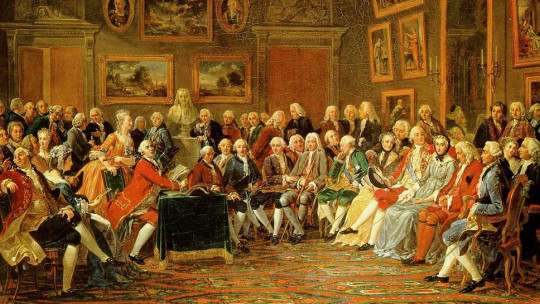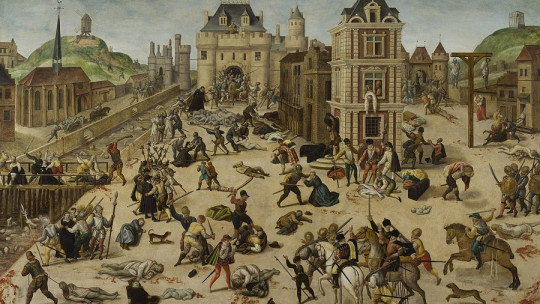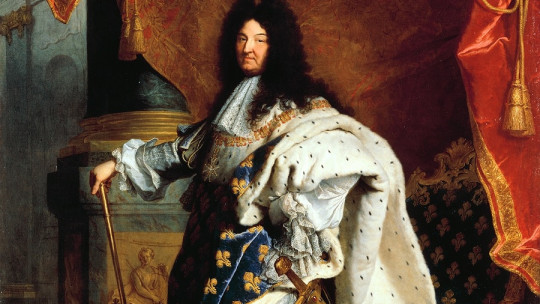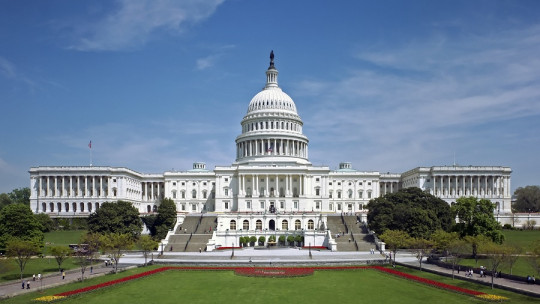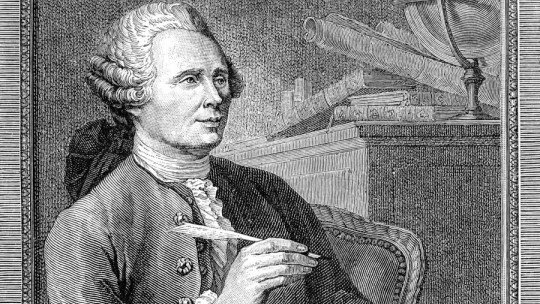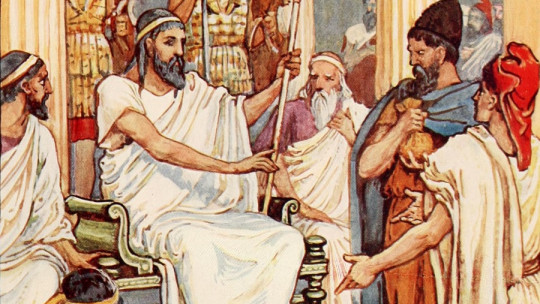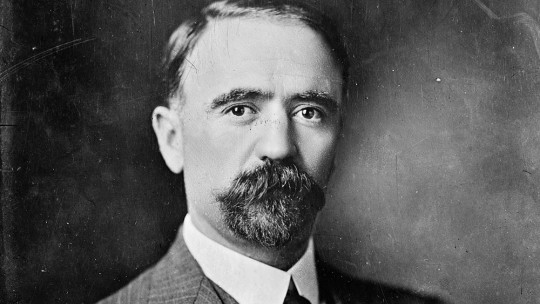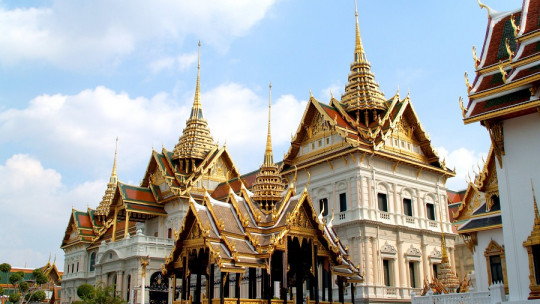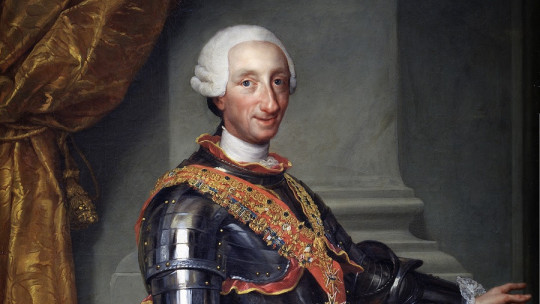
Europe, considered a fiefdom of democracy, was not always like this. For a long time it was organized in absolutist monarchies, in which the king held all the power and did not pay any attention to the situation of his people.
But this changed in the 17th century, with the appearance of the Enlightenment that, in the following century, would promote changes in the European political system, emerging enlightened despotism Below we will see in more depth what it consists of, and what changes it implied for the time.
What was enlightened despotism?
Enlightened despotism, also known as benevolent despotism or enlightened absolutism, is a political concept that refers to the style of government that many European countries adopted during the second half of the 18th century, in a world in which the Old Regime was still present. This type of form of government combined aspects of classical absolutism with philosophical ideas of the French Enlightenment.
The appearance of enlightened despotism represented a timid change with respect to the traditional absolutist system, in which the figure of the monarch was all-powerful. In this despotism, The monarch continues to have absolute power, but acquires a more sensitive vision regarding his people initiating reforms with the intention of improving their well-being, although always in a very moderate way and without abandoning a paternalistic perspective.
The changes in the treatment of its citizens, granting them greater freedoms, were not synonymous with a loss of privileges for the aristocracy, nor a reduction in the gap between social classes. Of course, the idea that the absolutist monarchy would eventually be replaced by a democratic republic was unthinkable and totally contrary to the established order. Enlightened despotism did not seek to take away the powers of the monarchy, but simply to promote some reforms.
The phrase that best summarizes the mentality of this system of government is that of “Everything for the people, but without the people” (“Tout pour le peuple, rien par le peuple” in French). This would mean that reforms had to be carried out to increase people’s satisfaction, promote knowledge, culture and wealth, but without the plebs having any involvement in the new measures, a class seen as chronically immature and mentally minor. talking.
On absolutism and the Enlightenment
Before going into more depth about the origin and consequences of Enlightenment despotism, it is necessary to explain, briefly, what absolutism is in its most classical aspect, and what the Enlightenment is.
absolutism
Absolutism is the modern name that has been assigned to the types of governments typical of the European Old Regime.
In the vast majority of countries at that time, sovereigns held total power of the state There was no public control of what the king did, and he himself decided how his kingdom functioned.
This idea is well summarized in a phrase said by Louis .
Illustration
The Enlightenment was a philosophical, artistic and scientific movement that emerged in Europe after the Renaissance In this cultural movement, its thinkers firmly believed in human reason and the progress of society.
This thought arose in France in the 17th century, although it did not remain only in the French country. It had a huge impact in other European countries and even crossed the Atlantic settling in the European colonies.
How did this system of government originate?
This form of self-government from the end of the ancien regime originated in the second half of the 18th century. Its appearance was not due to a voluntary proposal from European monarchs, who were practically all-powerful. The reason why these kings and emperors initiated reforms in their respective states were the criticism received from enlightened philosophers, critical of the traditional functioning of classical absolutism which promoted inequalities and injustices.
It is not that these philosophers, or, at least, most of them, wanted the arrival of republics. They simply considered that no sovereign should allow the people to suffer hardship. It was a humanistic opinion, so to speak. These thinkers were in favor of a gradual change in government structures, in order to prosper towards a more modern and rational society, but without giving up the figure of the monarch.
The change had to come from above, so that it was peaceful and controllable A popular revolution, from the perspective of the philosophers of the moment, would imply a change that was too profound and unexpected for the whole of society, and dangerous. It was necessary for monarchs to initiate reforms to keep society as a whole satisfied, and thus ensure that change, something that had always been feared, would be beneficial.
For this reason, whether with the empathetic argument of not wishing any harm to the plebs, or the argument of fear, that they should revolutionize, the monarchs listened to the philosophers. It was much better to keep the subjects happy, and improve their lives a little, than to give them the feeling that the sovereign cared little about their situation, and wait for them to rebel against him. This is when enlightened despotism itself arises.
Enlightened despotism It would never have been achieved if it were not for an unwritten pact between two social classes, apparently antagonistic, who held power. The nobility, its highest representative being the monarch, had held power for centuries. But they faced the problem that, despite having noble titles, these were not as important as money, something that the bourgeoisie did have in large quantities, and which was becoming the pillar of what would end up being capitalist society. .
Major illustrated monarchs
Among the main enlightened monarchs we find several European sovereigns, such as Charles III of Spain, Joseph I of Portugal, Joseph II of Austria, Maria Theresa I of Austria, Gustav III of Sweden, Louis XIV of France, Frederick II of Prussia and, surely the most notable, Catherine II of Russia, a great patron in Imperial Russia.
Some of these monarchs did not work alone. In fact, There are many figures of enlightened philosophers or other thinkers who are working as the right hand of a sovereign being the case of the Marquis of Pombal in Portugal, Gaspar Melchor de Jovellanos in Spain or Bernardo Tanucci in the Kingdom of the Two Sicilies.
Limitations of enlightened despotism
As you might have thought, especially given the fact that in Europe today most countries are republics or constitutional monarchies, enlightened despotism, enlightened despotism did not last forever, and that was due to its limitations.
The most notable was the fact that failing to structure society in a more democratic and egalitarian way, since no privileges were taken away from the nobility and the people, despite some modest improvements, continued to suffer. However, the successes in areas such as administration, economy and education were notable.
The monarchy was willing to give in in several areas, but not at all to break with the traditional caste system of the Ancien Regime. The nobility was the nobility, the clergy was the clergy and the plebs were the plebs, so it had been and so it should be. No matter how many reforms were made, taking away privileges from the nobility or giving them to the people was unthinkable, unnatural.
That is why, although within the plebs there would always be someone happy with the new reforms, others saw how the monarchy did not really want their well-being or, if it did, it was rather seeing them as small children who must be cared for, and who would never They will mature. And the people got tired, and as a consequence, the most radical acts that we explain below began.
Consequences
Clearly, the change in mentality that occurred during the Enlightenment, generating the change from classical absolutism to enlightened despotism, It had great benefits for European sciences and arts with not a few monarchs who behaved as great patrons, allowing great technological and cultural advances.
They gained many rights, such as greater ideological and religious freedom, in addition to having greater freedom of expression. Scientists could experiment without fearing that their new discoveries would be censored by religious organizations, while philosophers could think and express what they had concluded. Of course, Western civilization was advancing by leaps and bounds. And it was those giant steps that would end the system itself.
Giving greater freedoms to scientists, artists and, especially, philosophers, who had great freedoms to investigate, think and express themselves, meant, ironically, the beginning of the end of many absolutist monarchies. Many thinkers saw that they could aspire to more and that, although they had more freedom than before, many of the changes were not as beneficial as one might expect.
The nobles would continue to have many privileges, which would make the bourgeoisie think, especially, of the need for more radical changes. This thought would be the one that would sow the seeds of the French Revolution of 1789, with events as unthinkable decades earlier as the storming of the Bastille, the proclamation of the French Republic and the execution of the French kings, Louis XVI and his wife Marie Antoinette.

